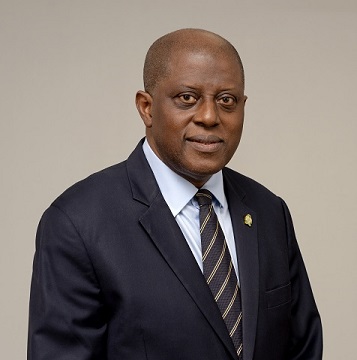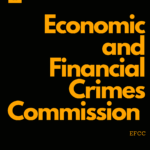Olayemi Cardoso, Governor of Central Bank of Nigeria (CBN), said, “reinforcing our domestic financial core while forging strategic international partnerships” will lead to a “resilient and diversified economy”.
The CBN Chief made the statement at the 301st meeting of the Monetary Policy Committee. At the meeting, it was “unanimously” agreed that, all key parameters will be maintained, including, Monetary Policy Rate at 27.5% and the Cash Reserve Ratio at 50% for Deposit Money Banks.
During a statutory briefing with the Senate Committee on Banking, Insurance & Other Financial Institutions, Cardoso reaffirmed “our shared responsibility in safeguarding financial system integrity”.
Taking to his official X account, Cardoso said: “Each month brings new opportunities to deepen stability, rebuild trust, and shape the kind of economy Nigerians deserve. At the Central Bank of Nigeria (CBN), our focus remains clear: strengthen the system, enable resilience, and stay anchored in service. And building a resilient and diversified economy requires a dual approach: reinforcing our domestic financial core while forging strategic international partnerships. Our work in July reflected this clearly, with deliberate policy action at home and meaningful strides in strengthening Nigeria’s global economic relationships.
“At the 301st meeting of the Monetary Policy Committee, we unanimously agreed to maintain all key parameters, including the Monetary Policy Rate at 27.5% and the Cash Reserve Ratio at 50% for Deposit Money Banks. This was a deliberate decision, grounded in data and discipline, and designed to allow recent reforms to take full effect while sustaining our commitment to price stability.
“In a statutory briefing with the Senate Committee on Banking, Insurance & Other Financial Institutions, I reaffirmed our shared responsibility in safeguarding financial system integrity. Strong institutions require legislative collaboration, not only to enact sound policy, but to preserve the public trust on which it depends.
“This domestic focus is yielding tangible results. The CBN is pleased to note that with the banking recapitalisation programme set to end in March 2026, eight banks have already exceeded the minimum capital requirement. This progress is a testament to the strength of our institutions and our collective commitment to a sound financial system.
“The Domestic Investors Summit provided an important opportunity to reaffirm the CBN’s commitment to building a financial system that listens, adapts, and works better. Domestic investors have held the line through periods of uncertainty; their resilience deserves clarity, consistency, and deeper collaboration. I commend the Federal Ministry of Industry, Trade and Investment for convening the summit and recognising that the lived experience of investors is essential to shaping policies that not only stabilise markets, but also unlock growth in the real economy.”
Cardoso made known, the Nigerian Apex Bank is widening the scope of foreign partnership that will be helpful in achieving Nigeria’s growth agenda.
He further made known, he received a World Bank delegation for “high-level discussions on macro-financial stability and structural reform”.
Cardoso said: “We are also expanding the scope of international partnerships that can support Nigeria’s growth agenda. On the sidelines of the BRICS Summit in Rio de Janeiro, I met with the Brazilian Development Bank (BNDES), to discuss practical areas for collaboration, including infrastructure, export credit, SME financing, and climate-related investment. These conversations are part of a broader push to diversify our financing partnerships across the global South and reduce structural vulnerabilities in our economy.
“We also welcomed a delegation from the World Bank, led by Anshula Kant, Managing Director and Chief Financial Officer, for high-level discussions on macro-financial stability and structural reform. As we continue to expand access and innovation in the financial sector, partnerships like this are critical to ensuring that inclusion and integrity go hand in hand.”
Cardoso concluded: “As I’ve often said, building a stronger financial system is not just about managing indicators. It is about restoring credibility, designing policy with clarity, and making room for the right type of ambition; the kind that supports a thriving economy and a more secure future.”



